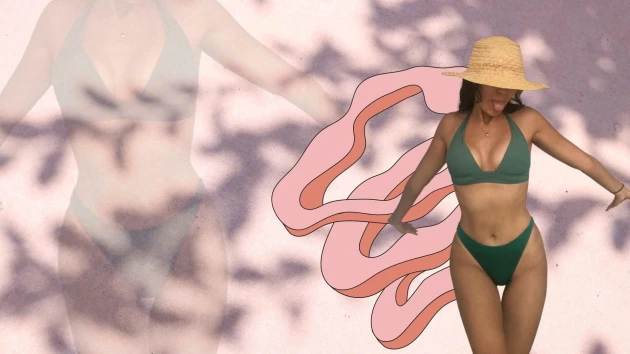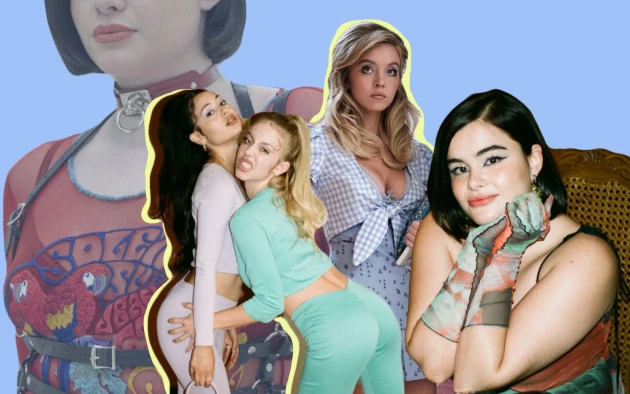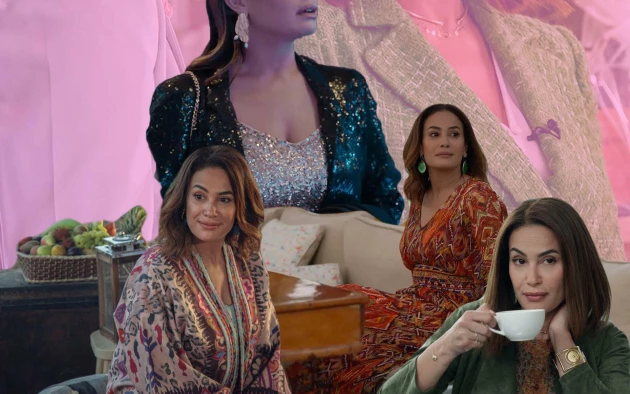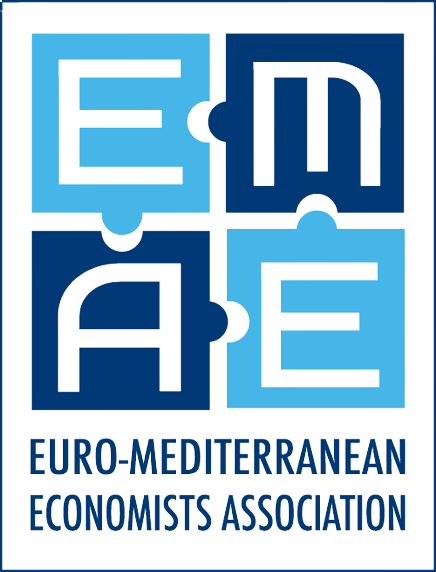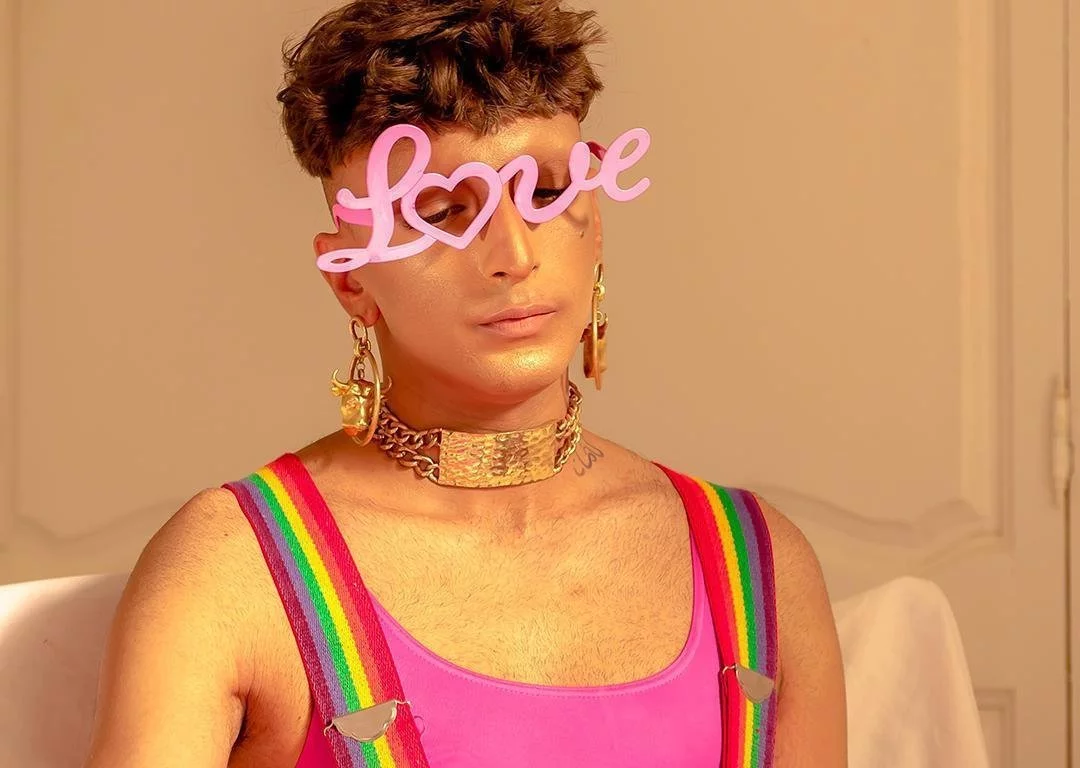
We celebrate the difference
Zoom with Khookha McQueer
6 min read — Nov 27, 2020
Khookha McQueer is a 33 Years old Queer who's also an activist, feminist, and writer. During this period she’s mostly oriented in her work to knowledge production whether through writing, debates, and workshops and sometimes she even takes initiatives or gets involved in some artistic projects.
During a very fun interview we managed to have with Khookha through a Zoom call, she talked to us about her relationship with fashion and everything that has to do with her own unique world of aesthetics and opened up about some of the struggles and challenges she’s facing as a queer activist who works a lot on the visuals.
Maft: You’re known as one of the most influencing Queer Tunisian figures who have a unique style. How did your relationship with fashion and make-up start?
Khookha: It actually started when I was very young through my consumption of media such as Fawazeer Sherihan, Arabic series (Egyptian ones mostly), and music clips. My family mostly followed Middle Eastern TV programs so I was influenced by that since I was very young. At that time I was not really interested much in the western media. From the age of 13/14, I started wearing clothes I chose myself that were influenced by TV shows that I used to follow and I was my own model. During high school, I wanted to be a fashion designer which didn’t happen unfortunately but I studied in an art school that influenced strongly my aesthetic choices, fashion sense, and what kind of clothes I preferred to wear.
Maft: Can you tell us more about your style and the aesthetics you’re drawn to?
KM: My style was mostly inspired by what I watched, how I was raised when I was young, and what appealed to me visually. My fashion sense has an eastern aspect that is always persistent. Even my fashion traits mostly resemble oriental traits. For example, when I travel out of Tunis, people usually mistake me for being from Turkey, Syria, Iraq. They usually think I’m from the Middle East but not from Tunisia. Besides, I’m also influenced by the Soviet aesthetic and also by the military style. In everyday clothes, I usually like to wear military-inspired boots or a military green jacket or anything inspired by that. But I’m still experimenting and trying new things.
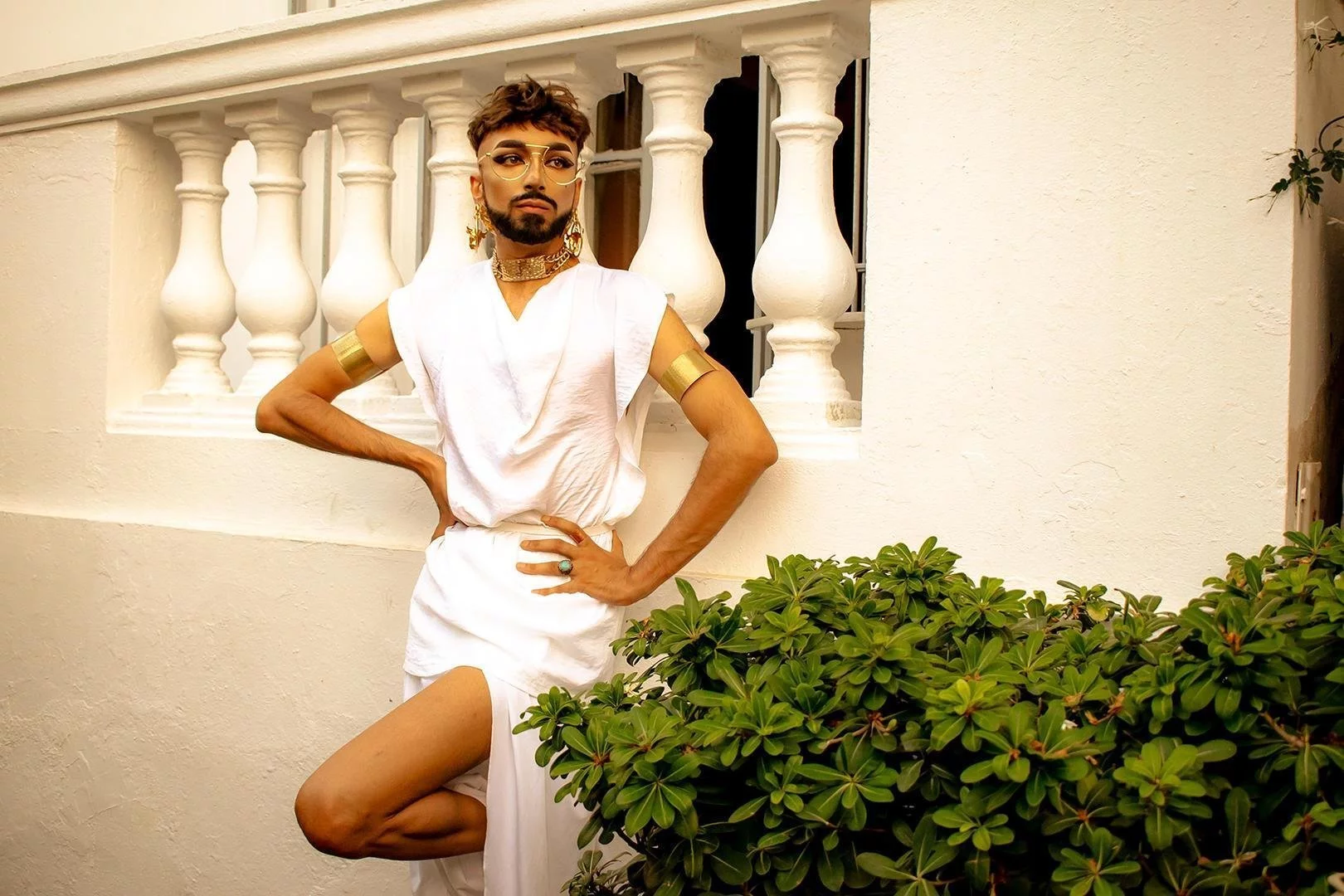
Maft: Through your Instagram feed, we noticed that you use art and different types of aesthetics in your pictures, that it became part of your identity. What does art mean to you?
KM: From a programmatic side, my art or artistic projects are usually really modest but what I like about it is that nobody needs a language to understand it and I discovered that mostly through Instagram. A visual that people from different places can see and understand.
Meanwhile, from a provocative side, you need to read a text to see if there’s anything provocative or sarcastic and then make an opinion about it. But visuals don’t take as much time, usually just a few seconds. And that’s what makes pictures/visuals able to express more than texts.
Maft: Khookha is considered by people in general as your alter-ego or personas you created, can you tell us who she is?
KM: Khookha is not really my alter-ego. During my performances and shows, people usually mistake us for being two different persons. But actually, it’s just a different side of my personality that I can’t show in my daily life. There's a certain limit of freedom and provocation when it comes to my daily life. Meanwhile, Khookha has the absolute freedom to express herself in ways I/She can’t usually do (in the streets, daily life). It’s the same person but she has more freedom in different contexts.
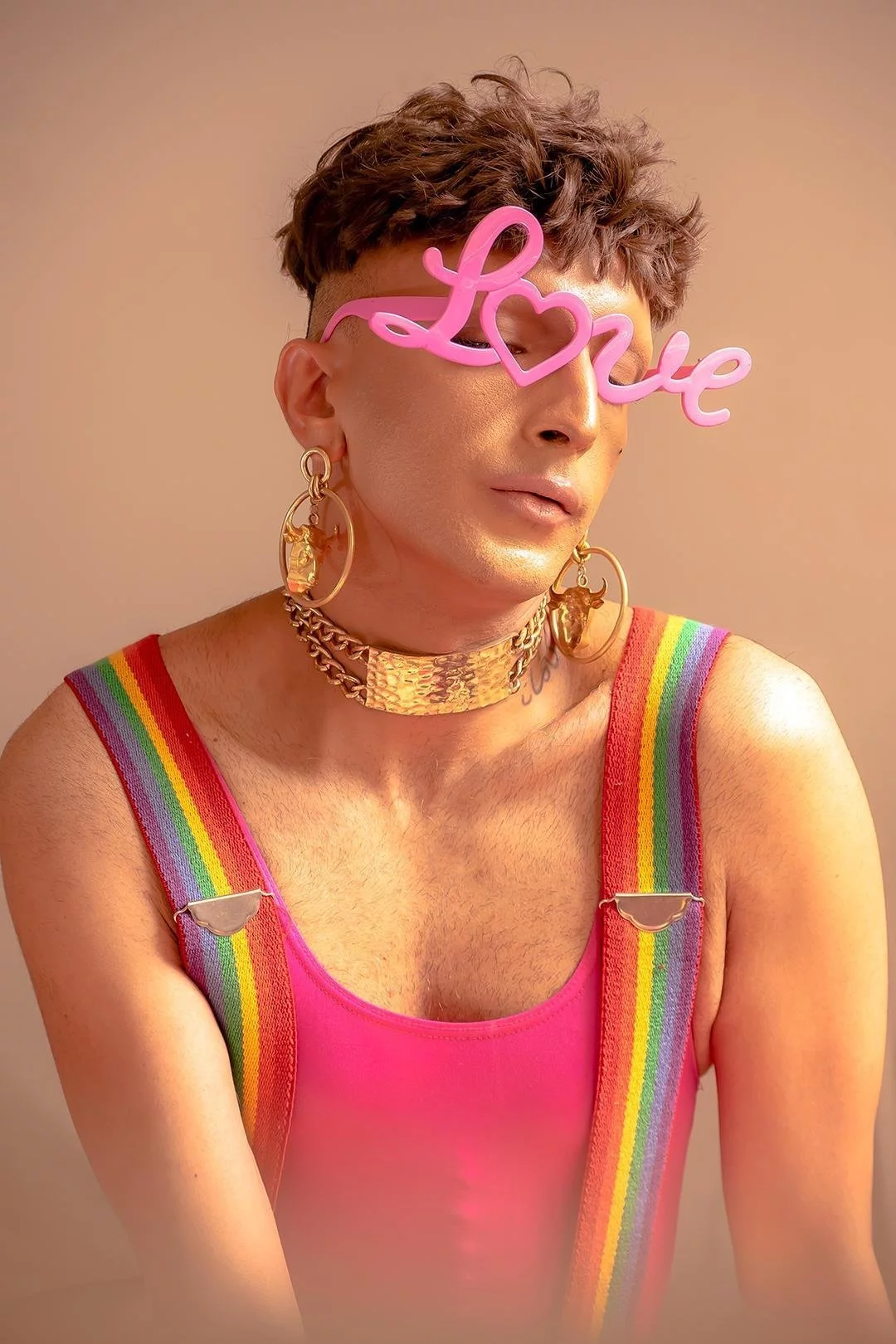
Maft: What kind of challenges are you facing regarding your style or the way you chose to dress?
KM: It’s evident when there’s an imposed protocol that people can’t cross to prove that our society doesn’t accept anything out of the ordinary. Even in activism, there’s a specific form of protesting; let’s say the traditional way of protesting: “respectful” people wearing formal clothes and protesting with suits and ties. When there was a new generation that included me, Amina Sboui, and Ramy Ayari, that presented a new form of protesting, while we were wearing what we chose to wear and what we think goes with our personalities, it was not accepted by NGOs and people in general. They found it ridiculous and not serious at all.
Maft: During your photoshoots, you used a lot of Arabian, Ottoman, Andalusian, Middle Eastern, and Mediterranean Aesthetics. Why do you think that can be " A Cultural Shock" for some people?
KM: There’s always an argument used when people talk about homosexuality: "We don’t have that in our culture, where are these people coming from, or "all of this, is the influence of the western world". "MNIN JEYIN HEDHOUMA!?" Well, it is a known fact that Tunisia, to begin with, is a mix of different cultures and even our dialect is a mix of different languages. And through different historical books, movies, and series it is proven that homosexuality is part of our culture as Tunisians and Arabs since ages ago. The newest Tunisian queer generation doesn’t have strong visual references when it comes to queer identity, in Tunisia. If you ask them what comes to mind when you think about that matter, they would answer probably, The TV show "Pose” or they would give other references that are coming from the western culture. Actions that should be made to prove that we have a rich Tunisian artistic and cultural queer history. And that’s one of the reasons why I chose this path.
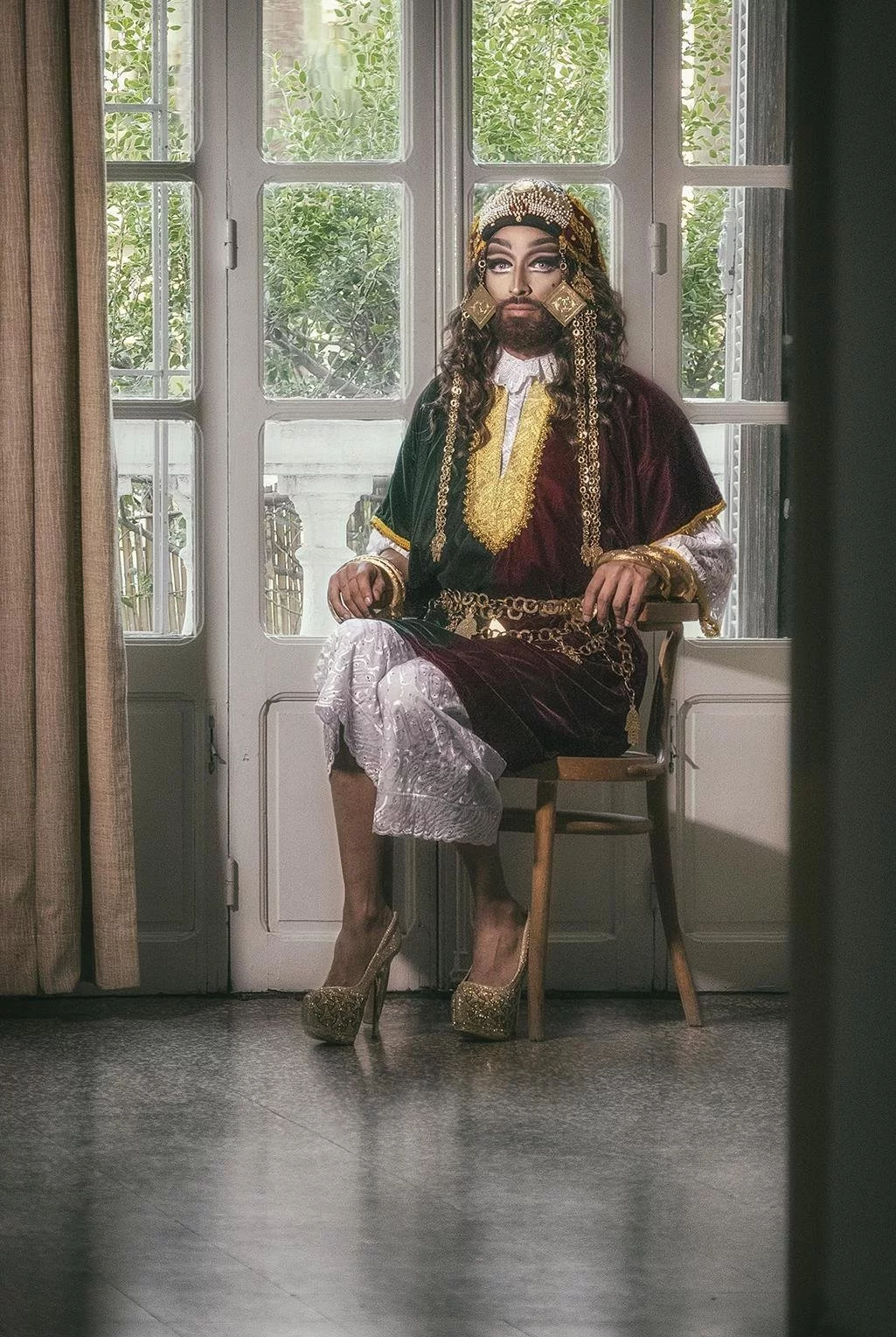
Maft: Do you believe that the Tunisian Fashion industry is embracing the Queer community in recent years?
We have a huge part of the Queer community in the fashion and artistic industries but most of them don’t really talk about their sexual preferences and they sometimes hide it from the public’s eye and ears, except Salah Barka who talked openly about his sexual orientation in an interview. But when it comes to the rest of the Queer community who work in these industries, people accept them because of the job they're doing but not from a political point of view. People can know about it or can point that out but they never discuss it. It’s something that should be worked on through the main players of the fashion industry. It’s a general policy. In 1993 a law was signed in the United States directing that military personnel “don’t ask, don’t tell, don’t pursue, and don’t harass.” When it went into effect, the policy theoretically lifted a ban on homosexual service that had been instituted during World War II, though in effect, it continued as a statutory ban. And that policy got lifted only with Barack Obama and through a lot of protests against it.
Maft: During 2020, you recently modeled for Made in Ifrikiya and Ekcci, will we see more of you?
It is actually related to the brand’s acceptance since it’s very delicate when you are working on your brand and selling products that are well perceived. When a brand says that they will choose queer figures as a part of their brand, it can attract the LGBTQ community and therefore, start to support them but the majority of the population might feel provoked and refuse that. Fear can influence brands to not take that step. But if there are any proposals I’m always down for it. I worked as a model before for « Cernée » and Salah Barka. To me, it’s a chance to raise awareness about LGBTQ rights but there are always risks for the brand in fear to be boycotted or not accepted by their customers.
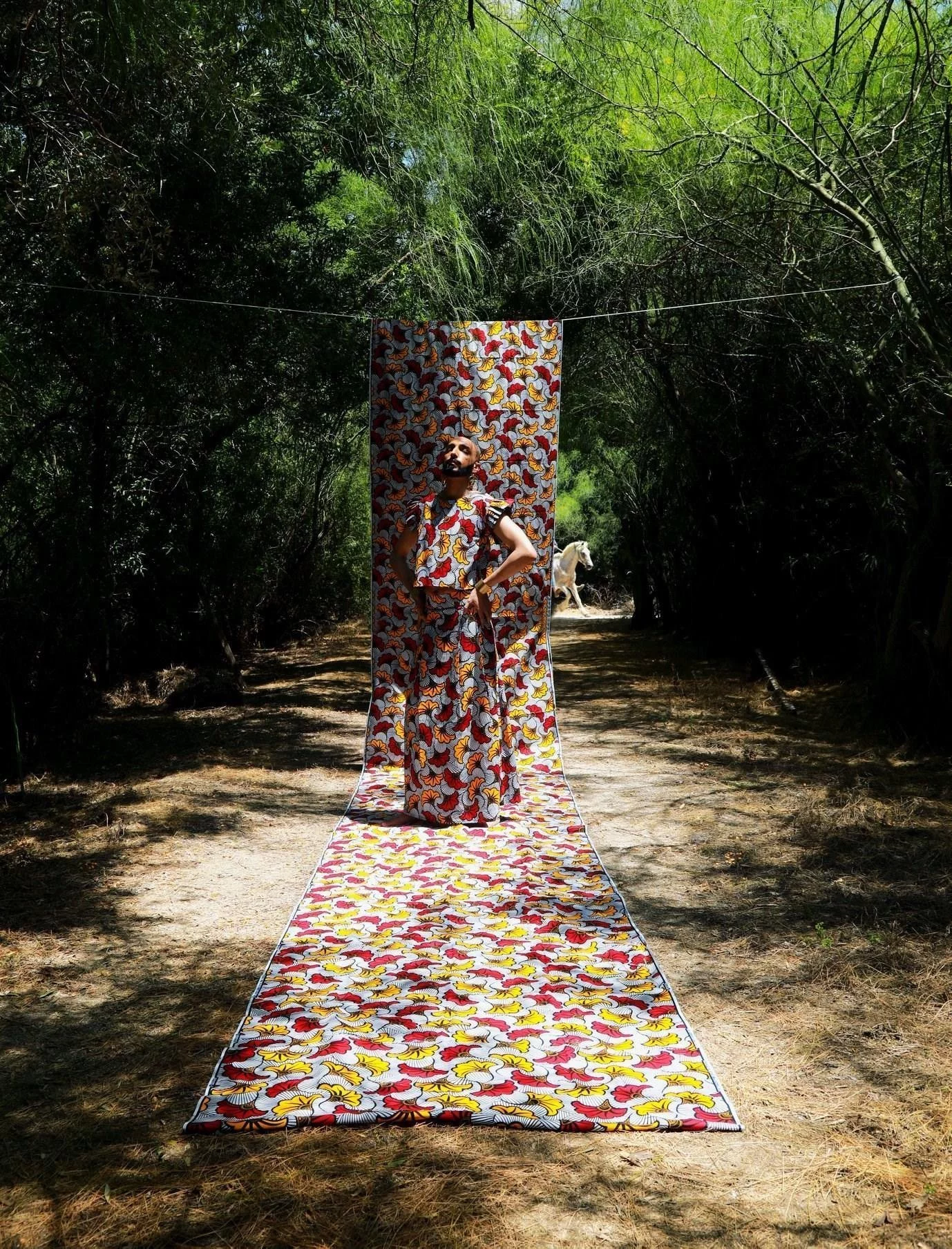 PHOTOGRAPHER: Mondher Mejri
PHOTOGRAPHER: Mondher Mejri 